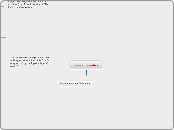Natural Disasters
Earthquakes and Volcanoes
13.A.4c Describe how scientific knowledge, explanations and technological designs may change with new information over time (e.g., the understanding of DNA, the design of computers).
* (Evaluation Level) compare the Theory of Continental Drift and the Theory of Plate Tectonics
List the evidence used to support the Theory of Continental Drift
Explain how the discovery of seas floor spreading led to the Theory of Plate Tectonics
12.E.2b Describe and explain short-term and long-term interactions of the Earth’s components (e.g., earthquakes, types of erosion).
* (Application Level) illustrate the motions associated with each of the 3 types of plate boundaries formed between Earth's lithospheric plates
Draw a diagram of a divergent plate boundary
Draw a diagram of a convergent plate boundary
Draw a diagram of a transform plate boundary
* (Analysis Level) analyze seismograms taken from different earthquake stations in order to locate the epicenter of an earthquake
define epicenter
define focus
Read a seismogram
* (Synthesis Level) integrate information obtained from the analysis of different seismograms to determine the Richter Magnitude of an earthquake.
Use time-distance graph to determine Richter Magnitude
* (Comprehension Level) distinguish between the different types of earthquake waves
List characterisitics of P waves
List characterisitics of S waves
List characterisitics of surface waves
12.E.3a Analyze and explain large-scale dynamic forces, events and processes that affect the Earth’s land, water and atmospheric systems (e.g., jetstream, hurricanes, plate tectonics).
* (Analysis Level) compare the 3 types of plate boundaries formed between Earth's lithospheric plates
Identify divergent boundary
Identify convergent boundary
Identify transform boundary
* (Comprehension Level) explain the causes of earthquakes
Explain Elastic Rebound Theory
* (Comprehension Level) explain how and where volcanoes occur
Relate volcanic activity to plate boundaries
* (Analysis Level) compare the different types of volcanoes
Composite
Cinder Cone
Shield
